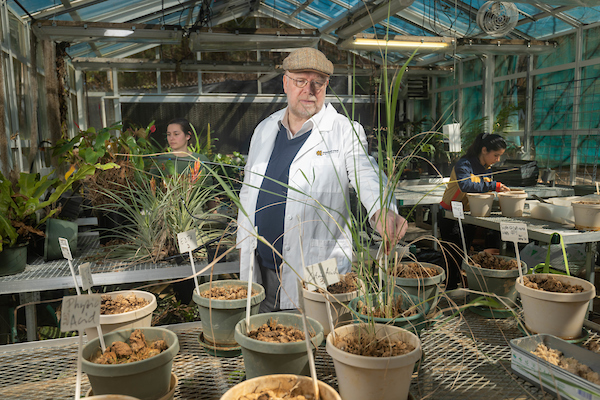Biology
Learn more about Biology
Admission Requirements
None.
This program does not have specific admission requirements. Only admission to Kennesaw State University is required to declare this major.
General Education Core IMPACTS Curriculum Recommendations for this Major
M: Students should take MATH 1113 or higher.
T: Students should take MATH 1179 or higher.
T: Select two course pairs from the following (8 Credit Hours): CHEM 1211/L, CHEM 1212/L, PHYS 1111/L*, PHYS 1112/L, PHYS 2211/L*, PHYS 2212/L, BIOL 1107/L, or BIOL 1108/L. *Students cannot take both PHYS 1111/L and PHYS 2211/L nor PHYS 1112/L and PHYS 2212/L.
Related Minors or Certificates Available
- Biology Minor
Sample Classes
-
BIOL 3310K: Invertebrate Zoology
This course is a survey of invertebrate animals. Students will explore the varied range of anatomical, physiological, and ecological relationships among these organisms in order to develop an understanding of evolutionary processes that brought about present day patterns in the biodiversity of animal phyla. In lab, students will collect, observe and identify common invertebrate taxa, and relate observed adaptations of form and function to habitat.
-
BIOL 3340: Microbiology
This course is a study of prokaryotes, unicellular eukaryotes and viruses. Students will learn about the nature of microorganisms and the techniques used to study microbes. Students will explore the morphology, metabolism, growth, and genetics of various microbes.
-
BIOL 3372K: Aquatic Biodiversity
This course is an introduction to the major plant and animal taxa found in aquatic ecosystems. Students will develop field and laboratory identification and collection skills while examining major ecological and biogeographical factors influencing distribution and abundance of aquatic organisms. Notes: A series of three weekend field trips are required.
-
BIOL 4440: Toxicology
This course is an introduction to the principles and mechanisms of toxicology as applied to toxicants encountered in the environment. Students will learn how toxins are absorbed, distributed, stored, and eliminated across a range of organisms. Students will also explore the transport of environmental contaminants and the characteristic of specific classes of toxicants as they relate to testing and regulation.












